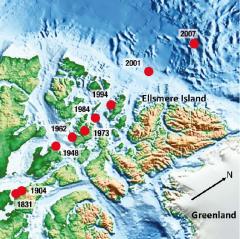MHD Turbulence and the Geodynamo
John V. Shebalin
(NASA Johnson Space Center, Houston, Texas, USA, and George Mason University, Fairfax, Virginia, USA)
Freitag/Friday, 2016-11-25 14:00 c.t., Raum EW 431
Eugene-Paul-Wigner Gebäude, Hardenbergstr. 36, 10623 Berlin
Zusammenfassung/Abstract:
Recent research results concerning forced, dissipative, rotating magnetohydrodynamic (MHD) turbulence will be discussed. These results come from very long-time Fourier method (periodic box) simulations in which forcing contains varying amounts of magnetic and kinetic helicity will be presented. They indicate that if dissipative MHD turbulence is forced so as to produce a state of relatively constant energy, then the largest-scale components are dominant and quasi-stationary, and produce an effective dipole moment vector that aligns closely with the rotation axis.
The relationship of this work to established results in ideal MHD turbulence, as well as to models of MHD turbulence in a spherical shell will also be presented. These results appear to be very pertinent to understanding the geodynamo, as well as its quasi-steady dipole component, and suggest that MHD turbulence, per se, may play an essential role in the creation of the Earth's dipole magnetic field.


